Janis Ian - Interview
by Lisa Torem
published: 5 / 11 / 2010
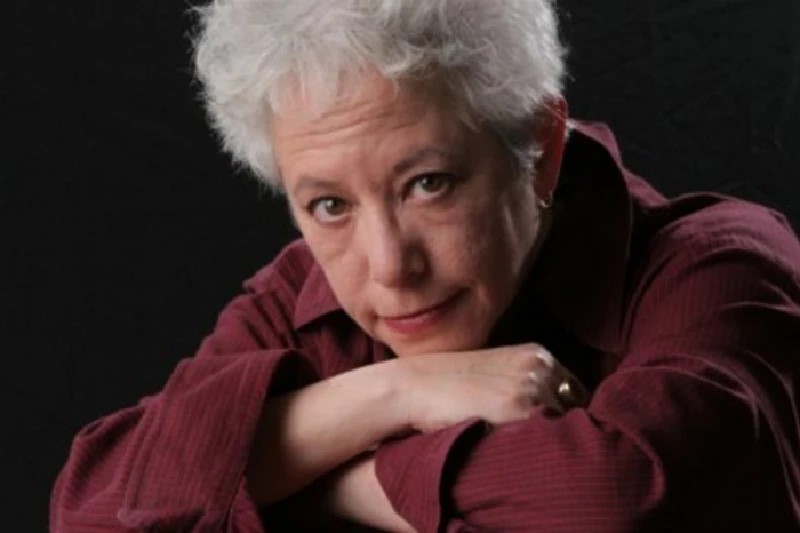
intro
In our second interview with her, influential singer-songwriter Janis Ian talks to Lisa Torem about her latest musical releases and her expanding interest in other aspects of writing
Although her first song, ‘Hair of Spun Gold’ won a songwriting contest, Janis Ian’s controversial ‘Society’s Child,’ which she recorded at fourteen, really put her on the map. Writing a song about an inter-racial love affair was risky business in 1965. Klu Klux Klan members threatened radio stations that played it on the air. But, despite death threats, the seasoned performer won audiences over with her rich voice and heart-felt lyrics. Moving others with her talent would happen many, more times over her five decade recording career. ‘At Seventeen,’ garnered two Grammy awards and five nominations in 1975. Brave, confessional lyrics that brought to life an “ugly duckling girl like me” and the acute observation, “to those of us who know the pain of valentines that never came,” inspired fans to flood her mailbox with cards. This samba also zeroed in on her unique ability to express universal emotions. After the gruelling work of seven acclaimed albums, Ian needed to explore other avenues. To that end, Ian spent the next decade, veering away from recording projects. She studied acting with Stella Adler in New York City. She recovered from a debilitating illness and met the love of her life. In 1993 she came out with ‘Breaking Silence’, another Grammy nominated project. Along the way, Ian renewed her love for writing. She worked with Nebula award-winning, sci-fi writer, Michael Resnick on an anthology in 2004 called ‘Stars,’ which featured stories based on Ian’s popular song titles. Exciting new projects with Resnick are in the works. During our first conversation, Ian summarized the discipline with this expression, “Writing is writing.” Whether it refers to a song, collaboration, column or anthology, one component remains the same; you have to sit yourself down in a chair and actually do it and for many that’s the hardest part. Ian seems to harbour little fear of the blank screen, however. Since our last conversation, she has collaborated with acclaimed author, Kevin J. Anderson and his wife, Rebecca Moesta, on his Terra Incognita Project series’ latest CD and a short story. She continues to co-write with contemporary artists, too. “To all the women who have gone before me /To all the women who have yet to come/We all wear our separate stories/But from a distance we are one.” are the opening lyrics to ‘Every Woman’s Song’ which is charting the Japanese radio airwaves. Ian co-wrote, what may become the next feminist anthem, with singer-songwriter Angela Aki. In her 2008 biography, ‘Society’s Child,’ Ian chronicles, with candor and great detail, the highs and lows of her roller-coaster trajectory, which included an abusive marriage and a childhood in which her father was scrutinized by the FBI. In her younger incarnation, Ian partied with rock giants such as Jimi Hendrix and Janis Joplin, though a less than clairvoyant manager nicked her chance at playing Woodstock. She was mentored by classical composer Leonard Bernstein and even intrigued with ‘Society’s Child’, the by- then blasé George “Shadow” Morton, who had produced the Shanagri-Las’ ‘Leader of the Pack.’ Ian’s Pearl Foundation, which she set up on the internet in 1998 to fund promising Goddard College students, and which she spearheaded on behalf of her own mother, remains one of her proudest accomplishments. In Pennyblackmusic’s second interview with Janis Ian, the multi-talented American artist, currently living in Nashville, speaks frankly about her most recent projects, her fascination with the art of writing and the impact “the artist” has on others. As always, Ian is a joy to speak with; witty, articulate and brimming with enthusiasm. A few moments before our official interview begins, she is rounding- up her barking dogs, dealing with repairmen and negotiating with her housekeeper, not to mention, packing for her next tour. But, the hustle and bustle of everyday life washes away, as our conversation begins. PB: I read something recently about producer “Shadow” Morton and I wanted to check this out with you. He said that he was reading a newspaper when you came in to audition for him… JI: And I set the newspaper on fire. That’s absolutely true. He ignored me. He kept saying that he was going to leave the music business and he wasn’t even polite enough to look at me, and so I set the newspaper on fire. When the lawyer who brought me, asked me to sing a third song, I went ahead and set the paper on fire. PB: And he loved it! That was a real wake-up call! JI: Well, for Shadow, he was so used to people just thinking, “Oh, God, this is the great Shadow Morton,” and I thought, man, you have no manners. PB: What’s interesting is that he had produced these all-girl bands, like the Shangri-Las; yet he was captivated by ‘Society’s Child’. He called you a “revolution” and you were just a girl and a guitar. JI: I guess so. I mean we never really spoke about any of that. But, it would seem that’s right. PB: At that time, I know you were relatively young, but you were must have been happy with his work. You let him produce three albums. JI: I didn’t even know what that meant. I mean, what does it mean to produce an album? I had no idea. PB: Janis, I know that in the 1990s, you spoke publicly about spousal abuse, and in your autobiography, ‘Society’s Child,’ you were very frank about topics such as sexual harassment and other things that had happened to you. I think it’s really important when people, who are high-profile and influential, tell the truth about their life. Did you get feedback from girls, who related to these experiences; who might have asked, “What do I do now?” JI: Yeah, absolutely. I think one of the great things about the internet, for instance, is that I have a really active message board or forum, and a lot of the times with kids like that, where if it’s not too severe of a problem, if it’s more just kid stuff, I’ll send them over to my message board, which is just a very welcoming community, and they’ll find adults who don’t treat them like idiots and have sympathetic ears. PB: You’ve sometimes been misunderstood. A woman heard ‘Jesse’, for example, and thought it was about a stalker. Is it common that people misinterpret your songs to that degree? JI: (Laughs) Another woman wanted to know why I made her commit suicide by swallowing lye on the stairs. Yeah, people mishear things or they misunderstand them. Sometimes people are in desperate need to feel like a song is about them or about their lives and they’ll really interpret it their way. It’s one of the reasons why I don’t really like commenting on my songs and I never talk about what they mean to me, because at it’s best I think a song should be left open for someone to make it their own. PB: You’ve been working with singer-songwriter Angela Aki on the newly released ‘Life’ album. You co-wrote ‘Every Woman’s Song’ and ‘Bop Bop Bop,’ and it’s really taking off in Japan. JI: It is. It debuted at number five. We were all very excited. PB: You’ve written lots of music for Japanese TV shows and features. Were you involved in the production of the album? JI: No. Angela was the producer. I would call myself, on that album, more of a facilitator. From the moment I started to make music, I was doing everything. From that moment on it was Angela. I mean, she’s just a wonderful, wonderful musician and writer. And, she led the band and me because I was just, from the moment we started playing, I became part of the band, as the main guitarist. PB: You’ve had this fantasy of being a sideman. You’re a great guitarist. Will you be doing more of that? JI: Thanks. You know, people are scared to ask me, so I don’t do as much of it as I like. I think people think that I would charge through the nose for it. I just really like playing. That was one of the reasons why I loved doing Angela’s project. There I was with four of the best sidemen in Nashville and one of the best artists I know and there I was the only acoustic guitarist. It was great. PB: You’re a self-taught guitarist. JI: I am. I am entirely. But, I did start on piano so I had a head start. I already knew how to read music. PB: So, do you have any interest in producing? JI: No, no. I’m way too elitist to be any good at that. You know, the thing of it is, when you’re working with an artist like Angela Aki…She’s brilliant. So, you might want to make a suggestion or two. You might want to suggest a musician. There was one song where I said I just really think the chorus could be brilliant and I don’t understand why you’re settling. You can say things like that because when somebody is brilliant they’re usually confident enough that they can listen. Most people are not brilliant. I have enough of an ego that I normally think I’m right. So, for me to work with another artist, I either have to be in complete control – which is not good for another artist – or I have to really be able to let go and spend a lot of time and I just don’t have that kind of time. Angela’s perfect because I’ve been mentoring her for years, so it’s a different thing. PB: You’ve worked with Kevin J. Anderson on the ‘Terra Incognita’ CD. JI: Yeah, I love Kevin (laughs). PB: And ‘The Dark Carbuncle’ – JI: That was seriously good fun. We had a good time writing that. PB: Can you fill me in on both projects? JI: Well, I think…I love short stories. I mean, if I could be something in another life I would be a brilliant, short story writer. That’s what I would do with my life. And, I think the great advantage of being able to write with a Kevin Anderson or a Mike Resnick is the learning curve, because you learn so much, quickly, and you manage to avoid so many natural mistakes, that it might take you years… It’s equivalent to a young writer writing a song with me. You know, if they’ve got their wits about them, they’re going to learn an awful lot. So, with Kevin, that was great because we were writing to deadline which is always good because that wakes you up, and we were writing funny and I love writing funny. So, that was fun, plus he’s very willing to try stuff, Kevin. He’s really good about that. PB: The ‘Terra Incognita’ project. What were you doing on that recording? Songwriting? JI: Yeah. I helped out with the lyrics. I wouldn’t call it writing them. I would really call it helping out. And, then Kevin wanted me to sing the two songs that I helped out with the lyrics on and I just kept telling him that I was the wrong singer and I finally said, “You know what, I’m going to take my own money and go into the studio and sing one of them and show you that I’m the wrong singer.” And, so that’s what I did. I went in and after he heard it, he said, “You’re right. You’re not the right singer!” You know, again, when somebody’s brilliant, they know how to reverse course, and they understand that there’s no ego to it. There’s no shame. So, I was just happy to be part of a project that out of my normal realm. PB: And ‘Dark Carbuncle?’ Is that a vampire tale? JI: No, actually, it’s a musician who’s brought back from the dead to sing his big hit. PB: When will that be coming out? JI: It’s just come out two weeks ago. I got my copy, anyway, two weeks ago. Gosh, what was it called, ‘Overbite?’ PB: Will you be doing book signings? JI: Oh, I doubt it, although I’ll probably run into Kevin at a convention or two. PB: And, are you still working with Michael Resnick? JI: Yeah, actually, we just finished plotting out a novel. We went up to Ohio last month and we spent three days just figuring out our characters and our plot and Mike’s just done a treatment for it and we’re going to give it to the agent to pitch. PB: Isn’t it unusual for two writers to collaborate on a novel? JI: It is and it isn’t. I mean, some of the great novels, C.L.Moore and Henry Kuttner, collaborated all the time. (C.L. Moore is a pseudonym for Catherine Lucille Moore). There have been some great novels written that way. I would suppose it’s more rare than solo novels. James Patterson has made a livelihood out of that. He’s got a real machine. He’s got fourteen or fifteen co-writers at any one time working on his novels. I don’t know if I’d want to do that but, again, it’s a learning curve with me with Michael. Mike knows so much and he’s such a good editor. Just even sitting with him for three hours a day and plotting, I’ve learned a lot. PB: How does this process work? Will you take turns writing chapters on the internet? JI: Oh, I don’t know. We’ll write a couple of lines and then the other one will take off from there. We’ll figure that out. I’ve found that those things - you tend to figure those things out as you go, best not to codify it. PB: I just saw your speech at the Berklee College of Music and it was really moving. JI: Thank you. Thank you. PB: And I realize you weren’t able to go to college, your mom was not able to go to college, but you were speaking to these college kids and you said so many thought-provoking things. For those who weren’t there, I’ll read some of your quotes:“The talent we bear is ephemeral,” “We live in a state of fear as artists” and “To be an artist is to be born an outlaw.” JI: That pretty much sums it up, doesn’t it? There’s not really anything else to say. That’s the whole speech. PB: But, when you were preparing that speech, and not knowing which kids in the audience you would reach, what was motivating you? JI: Well, I think my job at a place like Berklee is to bring a sense of passion to art. They get enough nuts and bolts from other people. So what they need from me is a cautionary tale of, “Do not become this.” A reason why artists become that is because it’s all very well to say, “Well, blah de blah” is just scared, that’s why she’s a bitch or he’s an asshole, but really the artists are the ones who need to look at that and say, “Why am I an asshole?” You know, we really need to see that, that stems from fear and from being out of control and, if you can get the artists when they’re still young, you stand a much better chance. So, I think mainly it’s important for someone like me to stand up and say, “I’m an artist. I’ve survived. I still make a living doing it. I still love doing it. And you can have this, too.” That’s really important. PB: What do you mean by “being out of control?” JI: Being out of control? Just being a jerk. Well, how many brown M & M’s and stuff like that. PB: How have you kept yourself so centered? JI: Well, I have a partner or a wife or whatever you would like to call her (Laughs) who doesn’t allow that, so that’s pretty simple. And I tend to attract people around me, who are not “yes men,” who tell me what they actually think. PB: Did the Berklee students come up to you afterwards? JI: Oh, yeah, I got a great reaction, but I was there for ten days, teaching and observing and just kind of meeting with small groups, too. I think it had a really good impact. It’s good to be articulate. There are not too many articulate artists. PB: What were you teaching? JI: Oh, God, everything; everything from cautionary tales, like I said, to performance mechanics to guitar mechanics to sight-reading, you name it. I mean, fortunately, for me, I’m pretty well-grounded. PB: You’ve written a number of short-stories. You might call them “world stories” as they are about different cultures. Are you still writing those stories and is there a way to get access? You explored some interesting multi-cultural themes. JI: Thanks. Yeah, I keep trying to take time off to write short stories so I have enough for a book. I’m moving towards that, anyway. PB: Do you see yourself continuing the ‘Society’s Child’ book with a part two? JI: Oh, gosh, no, one autobiography in a lifetime is plenty. PB: Would you like to see the book made into a film? JI: I think that would be great, yeah. PB: I wish I were a director. JI: I wish you were one, too. PB: Who would portray you? JI: Well, Sigourney Weaver, of course, somebody tall and lithe. PB: What’s going on with the Pearl Foundation? JI: Not too much. We’re giving away money. We raise money, we give away money. It’s pretty basic. Last year, we gave away $180,000. It looks like this year’s a little bit quieter. I think we’ll only do $90…but still. We’ve given away over half a million dollars so far. Yeah, it’s pretty amazing. The fans are great. That whole on-line argument that I got into about whether it makes sense to give away music..We find that people donate a dollar here, ten dollars there, a hundred dollars here and there, you know, and the merchandise money goes to that too, so that helps. PB: What do you remember about how your mother raised you? JI: Oh, gosh. She let me be. I think that’s the main thing. She allowed me to be what I wanted to be. PB: A number of artists have covered your tunes; Dusty Springfield, Nina Simone, Vanilla Fudge… Who do you think did the best job? JI: Oh, no, no, no, no no…I wouldn’t even get close to saying that… The truth is if it’s done with a willing heart, it’s always a good cover. There might be something that I prefer because I love the Vanilla Fudge version of ‘Society’s Child’ because it’s so different from mine, but realistically, somebody like Bette Midler, who listens to hundreds and hundred and hundreds of songs before choosing one, she’s cut two of mine, that’s pretty amazing, and Barbara Cook, same thing. As corny as it sounds, it’s a real privilege when somebody records your songs. PB: I’m sure it is. Janis, if you could live one day of your life over again, which one would you choose? JI: Wow, and undo it, you mean? PB: Well, you can undo it or you could live it again. JI: No, no, I’d live it again. You know, I’d have a Passover with my entire family while everybody was still alive, something that basic, yeah. That’s a good question. PB: As far as touring are you just taking it a tour at a time? JI: Just trying to get through. I’m excited because I’m leaving on a Thursday and I’m going to rehearse for four days with Tom Paxton and then we’ve got four dates coming up and then a bunch more over the next year. So, that’s going to be a lot of fun because we’re not going to be treating it like a traditional boy-girl thing. We’re opening together; we’re going to close together. We’re just going to weave in and out of each other’s sets together so I think that will be great. PB; That’s a great pairing. JI: That’s going to be fun. PB: Thank you.
Band Links:-
https://www.janisian.com/https://en-gb.facebook.com/janisianpage/
https://twitter.com/therealjanisian
https://en.wikipedia.org/wiki/Janis_Ian
Have a Listen:-
Picture Gallery:-
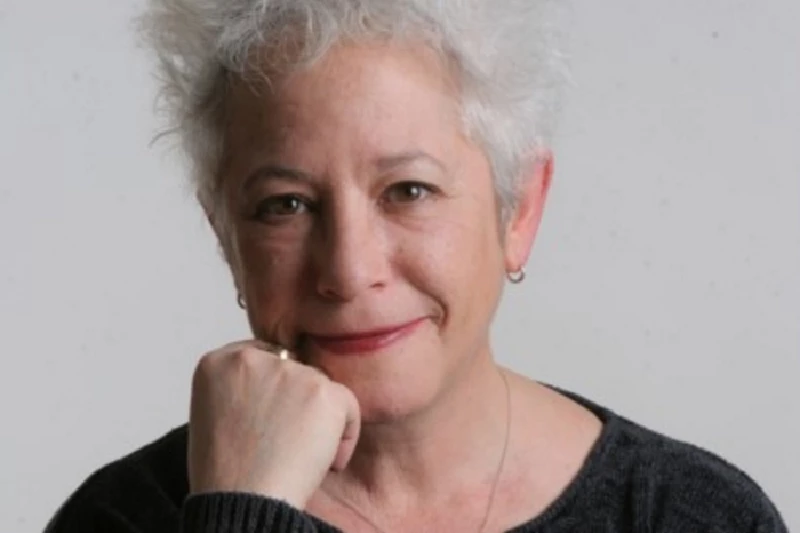


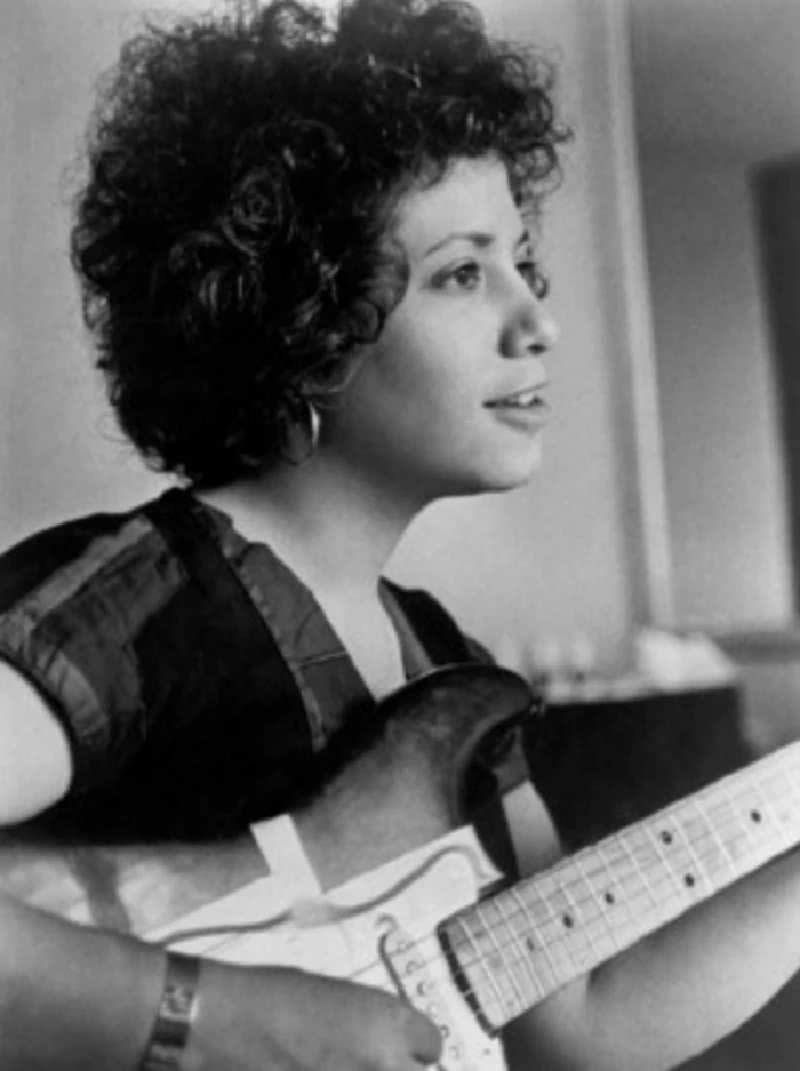
Visitor Comments:- |
| 375 Posted By: Myshkin, London on 19 Nov 2010 |
|
A really great read this, thanks Lisa. Well researched, informative and in-depth. It's a pity more stuff like this doesn't make the mainstream media who only seem, nowadays, in short, soundbite pieces that say next to nothing.
|
interviews |
|
Interview (2017) |
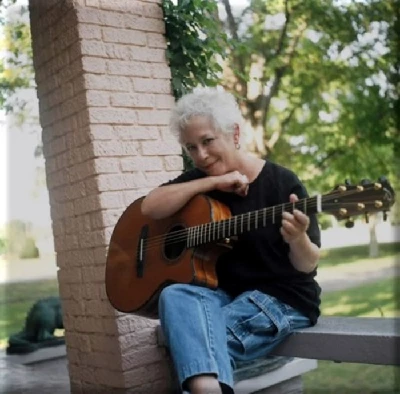
|
| American singer-songwriter Janis Ian talks to Lisa Torem about 'The Essential 2.0', her new double CD of remasters which spans her entire career. |
| Interview (2016) |
| Interview (2009) |
profiles |
|
Janis Ian (2010) |
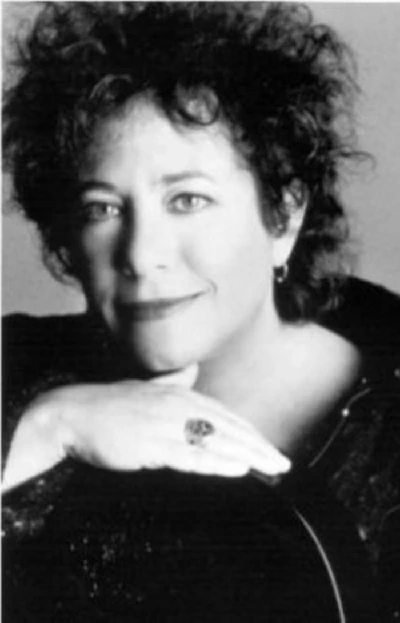
|
| American folk singer-songwriter Janis Ian has just been the subject across two new reissues of three of her albums and a concert performance on 'The Old Grey Whistle Test' from the mid 1970's. Lisa Torem assesses her career at the time and both reissues |
live reviews |
|
Old Town School of Folk Music, Chicago, 14/5.2002 |
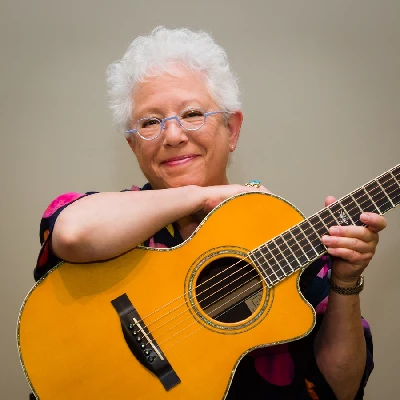
|
| Lisa Torem at the Old School Town of Folk Music watches singer-songwriter Janis Ian sing highlights from her new album The Light at the End of the Line’ but also drew from seasoned hits on her final tour. |
features |
|
Sacrificial Songs, Samba and Soldiers – To the Sister I Wish I Had (2009) |
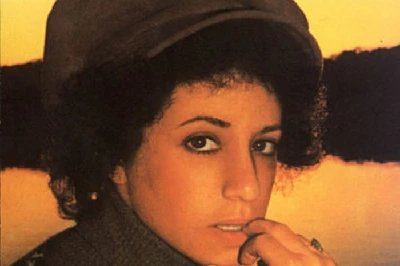
|
| In our 'Soundtrack of Our Lives' column, in which our writers examine the personal impact of their lives, Lisa Torem looks at the career and history of singer-songwriter Janis Ian which have drawn several parallels with her own life |
soundcloud
reviews |
|
The Light at the End of the Line (2022) |
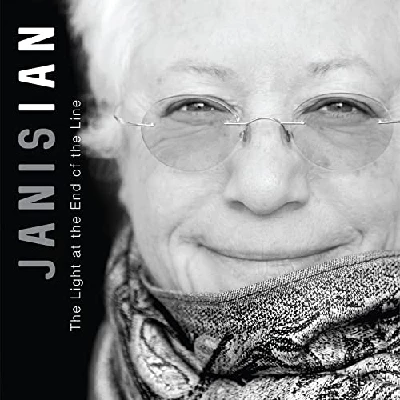
|
| Eclectic and powerful first album in fifteen years from Grammy award-winning singer-songwriter Janis Ian which she says will be her last and proves a fitting conclusion to her unique musical career. |
| The Essential 2.0 (2017) |
most viewed articles
current edition
John McKay - InterviewRobert Forster - Interview
Cathode Ray - Interview
Spear Of Destiny - Interview
Fiona Hutchings - Interview
When Rivers Meet - Waterfront, Norwich, 29/5/2025
Carl Ewens - David Bowie 1964 to 1982 On Track: Every Album, Every Song
Chris Wade - Interview
Brian Wilson - Ten Songs That Made Me Love...
Shrag - Huw Stephens Session 08.12.10 and Marc Riley Session 21.03.12
previous editions
Heavenly - P.U.N.K. Girl EPBoomtown Rats - Ten Songs That Made Me Love....
Allan Clarke - Interview
Manic Street Preachers - (Gig of a Lifetime) Millennium Stadium, Cardiff, December 1999
Oasis - Oasis, Earl's Court, London, 1995
Barrie Barlow - Interview
Dwina Gibb - Interview
Beautiful South - Ten Songs That Made Me Love...
Pixies - Ten Songs That Made Me Love...
Sound - Interview with Bi Marshall Part 1
most viewed reviews
current edition
Peter Doolan - I Am a Tree Rooted to the Spot and a Snake Moves Around Me,in a CircleVinny Peculiar - Things Too Long Left Unsaid
Garbage - Let All That We Imagine Be The Light
Vultures - Liz Kershaw Session 16.06.88
John McKay - Sixes and #Sevens
Little Simz - Lotus
HAIM - I Quit
Morcheeba - Escape The Chaos
Eddie Chacon - Lay Low
Billy Nomates - Metalhorse
Pennyblackmusic Regular Contributors
Adrian Janes
Amanda J. Window
Andrew Twambley
Anthony Dhanendran
Benjamin Howarth
Cila Warncke
Daniel Cressey
Darren Aston
Dastardly
Dave Goodwin
Denzil Watson
Dominic B. Simpson
Eoghan Lyng
Fiona Hutchings
Harry Sherriff
Helen Tipping
Jamie Rowland
John Clarkson
Julie Cruickshank
Kimberly Bright
Lisa Torem
Maarten Schiethart